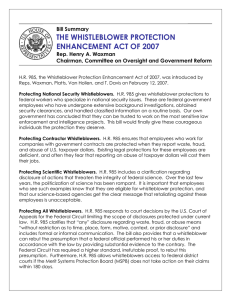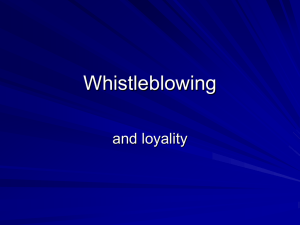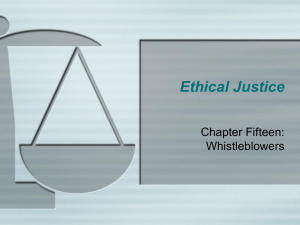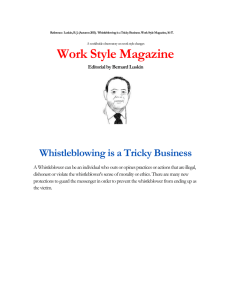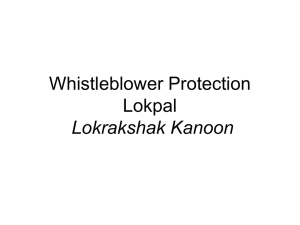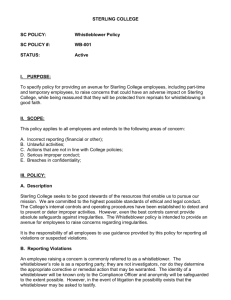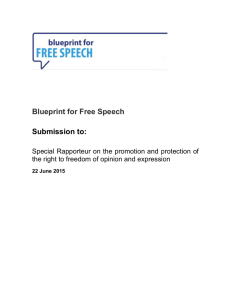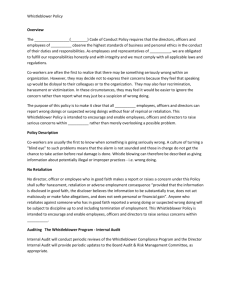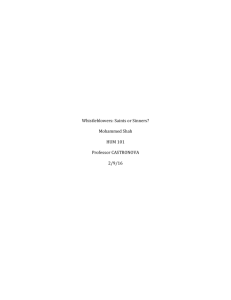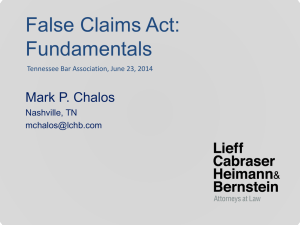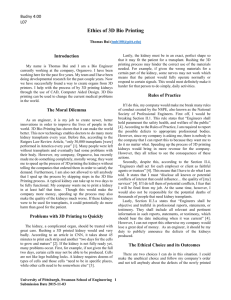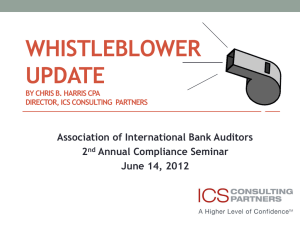Whistleblower Protection Legislation in the 114 th Congress
advertisement
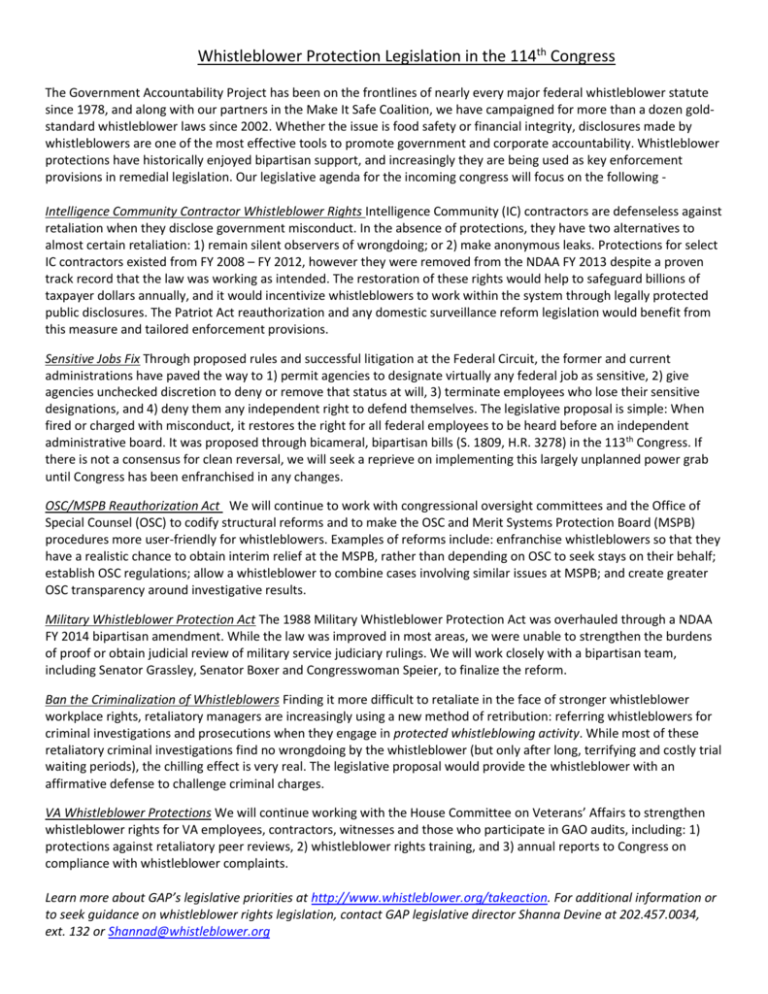
Whistleblower Protection Legislation in the 114th Congress The Government Accountability Project has been on the frontlines of nearly every major federal whistleblower statute since 1978, and along with our partners in the Make It Safe Coalition, we have campaigned for more than a dozen goldstandard whistleblower laws since 2002. Whether the issue is food safety or financial integrity, disclosures made by whistleblowers are one of the most effective tools to promote government and corporate accountability. Whistleblower protections have historically enjoyed bipartisan support, and increasingly they are being used as key enforcement provisions in remedial legislation. Our legislative agenda for the incoming congress will focus on the following Intelligence Community Contractor Whistleblower Rights Intelligence Community (IC) contractors are defenseless against retaliation when they disclose government misconduct. In the absence of protections, they have two alternatives to almost certain retaliation: 1) remain silent observers of wrongdoing; or 2) make anonymous leaks. Protections for select IC contractors existed from FY 2008 – FY 2012, however they were removed from the NDAA FY 2013 despite a proven track record that the law was working as intended. The restoration of these rights would help to safeguard billions of taxpayer dollars annually, and it would incentivize whistleblowers to work within the system through legally protected public disclosures. The Patriot Act reauthorization and any domestic surveillance reform legislation would benefit from this measure and tailored enforcement provisions. Sensitive Jobs Fix Through proposed rules and successful litigation at the Federal Circuit, the former and current administrations have paved the way to 1) permit agencies to designate virtually any federal job as sensitive, 2) give agencies unchecked discretion to deny or remove that status at will, 3) terminate employees who lose their sensitive designations, and 4) deny them any independent right to defend themselves. The legislative proposal is simple: When fired or charged with misconduct, it restores the right for all federal employees to be heard before an independent administrative board. It was proposed through bicameral, bipartisan bills (S. 1809, H.R. 3278) in the 113th Congress. If there is not a consensus for clean reversal, we will seek a reprieve on implementing this largely unplanned power grab until Congress has been enfranchised in any changes. OSC/MSPB Reauthorization Act We will continue to work with congressional oversight committees and the Office of Special Counsel (OSC) to codify structural reforms and to make the OSC and Merit Systems Protection Board (MSPB) procedures more user-friendly for whistleblowers. Examples of reforms include: enfranchise whistleblowers so that they have a realistic chance to obtain interim relief at the MSPB, rather than depending on OSC to seek stays on their behalf; establish OSC regulations; allow a whistleblower to combine cases involving similar issues at MSPB; and create greater OSC transparency around investigative results. Military Whistleblower Protection Act The 1988 Military Whistleblower Protection Act was overhauled through a NDAA FY 2014 bipartisan amendment. While the law was improved in most areas, we were unable to strengthen the burdens of proof or obtain judicial review of military service judiciary rulings. We will work closely with a bipartisan team, including Senator Grassley, Senator Boxer and Congresswoman Speier, to finalize the reform. Ban the Criminalization of Whistleblowers Finding it more difficult to retaliate in the face of stronger whistleblower workplace rights, retaliatory managers are increasingly using a new method of retribution: referring whistleblowers for criminal investigations and prosecutions when they engage in protected whistleblowing activity. While most of these retaliatory criminal investigations find no wrongdoing by the whistleblower (but only after long, terrifying and costly trial waiting periods), the chilling effect is very real. The legislative proposal would provide the whistleblower with an affirmative defense to challenge criminal charges. VA Whistleblower Protections We will continue working with the House Committee on Veterans’ Affairs to strengthen whistleblower rights for VA employees, contractors, witnesses and those who participate in GAO audits, including: 1) protections against retaliatory peer reviews, 2) whistleblower rights training, and 3) annual reports to Congress on compliance with whistleblower complaints. Learn more about GAP’s legislative priorities at http://www.whistleblower.org/takeaction. For additional information or to seek guidance on whistleblower rights legislation, contact GAP legislative director Shanna Devine at 202.457.0034, ext. 132 or Shannad@whistleblower.org
